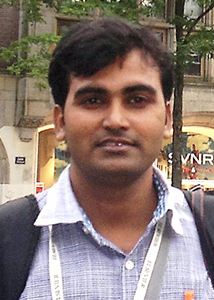Any deviation or imbalance from homeostatic state of steady internal physical and chemical conditions in living systems, generally falls under category of disease. Chances of bringing them back to normalcy or closer to healthier state with therapeutic interventions are found to be more successful when they are applied at very early stage. Biosensing has emerged as a process to achieve early detection of deviations in such homeostatic states via evaluation of physiological, chemical, or biomolecular parameters in the subjects. The two main components on which efficiency of biosensors rely are materials used as platform technology and methods of detection used for the task. In this issue we will be assembling recent advancements in the field of Biosensors in terms of used materials and methods in achieving high sensitivity, specificity and predictability in form of original research.
Topic Editor
 |
Santosh Misra, Ph.D. Dept of Biological Sciences & Bioengineering, Indian Institute of Technology, IIT Kanpur, U.P., IN |
Schedule – The dates
Abstract Submission: September 30, 2021
Article Submission: January 31, 2022 (Processing – ‘as we go’ model)
Issue completion: May 30, 2022
Field – Research area
Biosensors
NanoMedicine & Biomaterials
NanoChemistry and Chemistry Materials
NanoScience Nanotechnology
Polymer and Functional Materials
Materials Science
Participating Journal
Journal of Materials NanoScience – Nanomedicine section
Program
This special issue is under the Lead 20 program where leading scientists/academicians in the above field with well established lab, good publication record (an online link in form is required) and are under the age of 40 will be eligible to participate in this compilation. The editor will choose the best leading scholars from all the submitted entries (selection will be at abstract submission level as well as at full article level through peer review.
Authors / Abstracts
This is new recent Topic announced, the list of authors/abstracts will be updated here. This is an open invitations for interested researchers to submit the abstract for this topic. Submit the abstract with detail below:
The abstract details can also be forwarded directly to topic editor or editorial office at pubs @ thesciencein (dot) org
